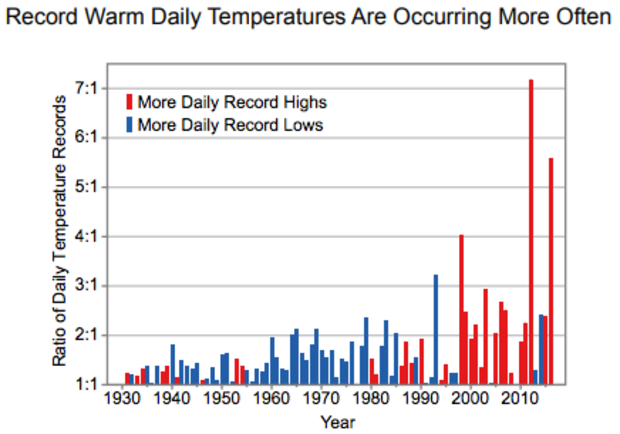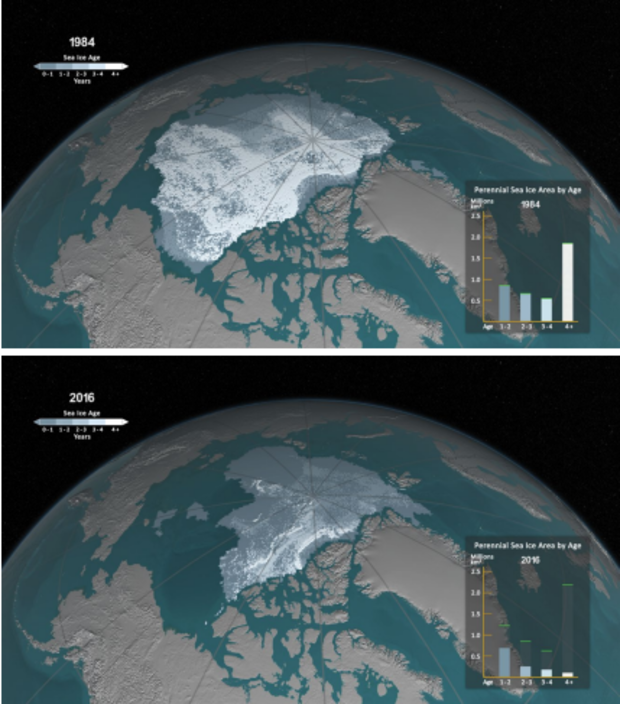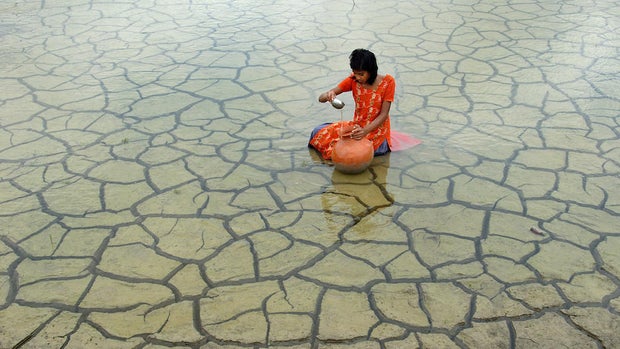Climate change report says humans "extremely likely" to blame for warming
A new Trump administration report on climate change paints an apocalyptic portrait of global climate trends, saying the last three years have been the "warmest years on record for the globe" and that humans are almost certainly causing the climate to change.
The massive, 477-page National Climate Assessment says that it is "extremely likely" that global warming has been caused by humans -- with 95 to 100 percent certainty -- mostly from carbon dioxide through the burning of coal, oil and natural gas.
"It is extremely likely that human influence has been the dominant cause of the observed warming since the mid-20th century," the report says. "Over the last century, there are no convincing alternative explanations supported by the extent of the observational evidence."
Thirteen federal agencies were involved in producing the report, which is mandated by law. The Trump administration did not seek to block its release, but the conclusion directly contradicts statements made by senior members of his cabinet.
Energy Secretary Rick Perry and Environmental Protection Agency chief Scott Pruitt have both said carbon dioxide (CO2) isn't the primary contributor to global warming.
The White House issued a statement shortly after the report was made public. It said the administration "supports rigorous scientific analysis and debate and encourages public comment on the draft documents being released today."
Since 1900, the report says Earth has warmed by 1.8 degrees and seas have risen by 8 inches. Heat waves, downpours and wildfires have become more extreme and more frequent. Glaciers are receding and Arctic sea ice has sharply declined. "Arctic sea ice loss is expected to continue," the report says, "very likely resulting in nearly sea ice-free late summers by the 2040s."
The new report calls the time period between 1901 and 2016 "the warmest in the history of modern civilization," and warns that record-breaking climate extremes are likely to continue.
"The last few years have also seen record-breaking, climate-related weather extremes, the three warmest years on record for the globe, and continued decline in arctic sea ice. These trends are expected to continue in the future over climate (multidecadal) timescale," it says.
On an ominous note, the report notes that "humanity's effect on the Earth system ... is unprecedented," and warns that the faster the Earth is "pushed towards warming," the greater the risk of "unanticipated surprises."
The report identifies two broad types of risks that accompany a changing climate. So-called "compound events" occur when two or more extreme weather events happen simultaneously. "Threshold" or "tipping point" events occur when a significant milestone is reached in the climate system as a whole. The frequency of both types will continue to increase.
"A lot of what we've been learning over the last four years suggests the possibility that things may have been more serious than we think," said Robert Kopp of Rutgers University, one of dozens of scientists inside and outside the government who wrote the reports.
While more than 190 other countries around the world have committed to lower emissions goals as part of the Paris climate agreement, the Trump administration pulled out of the accord last May. The EPA is also rolling back provisions of the Clean Power Plan and easing limits on emissions from coal-fired power plants.
The White House responded with a statement saying: "The climate has changed and is always changing. As the Climate Science Special Report states, the magnitude of future climate change depends significantly on 'remaining uncertainty in the sensitivity of Earth's climate to [greenhouse gas] emissions.' In the United States, energy related carbon dioxide emissions have been declining, are expected to remain flat through 2040, and will also continue to decline as a share of world emissions."






